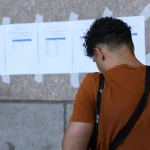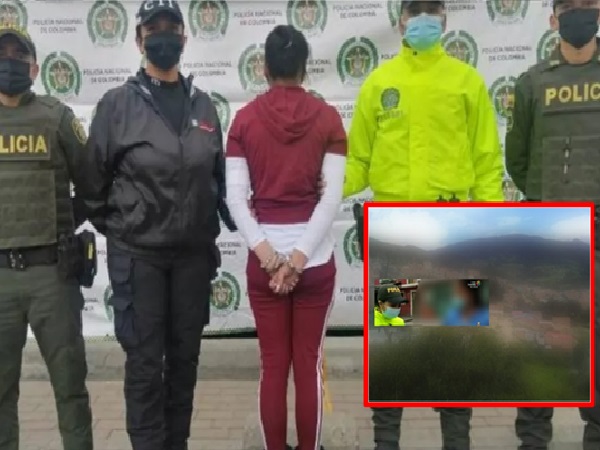
The Supreme Court accepted the appeal for protection filed on behalf of businessmen, workers and unions and ordered the local authorities, the presidential delegates of the Biobío Region and the Province of Arauco, to carry out the pertinent coordination to avoid acts of violence in the area.
The Third Chamber of the highest court –composed of the ministers and ministers Sergio Muñoz, Ángela Vivanco, Adelita Ravanales, Mario Gómez and the lawyer (i) María Cristina Gajardo– established the arbitrary and insufficient action of the appealed authorities to deal with the criminal acts that are repeated in the southern part of the country, according to what the Judiciary establishes on its website.
The judgment speaks of “that, however, even though the deployment of significant effort made for quite some time to address the exposed problem becomes evident, without a doubt, the filing of constitutional actions that have the purpose of denouncing the violation of human rights. protected by the Fundamental Charter, in view of the continuity and even the increase in acts of violence such as those denounced by the appellant, it is possible to notice the lack of effectiveness of the policies implemented to deal with this type of event”.
Likewise, it establishes that “beyond the undoubted need for reparation or compensation in favor of those who have been affected by the occurrence of this type of criminal act, the truth is that it cannot be lost sight of that the primary approach must be focused on in the adoption of measures aimed at preventing such contingencies, since, in this way, it will be feasible to eliminate the need for repair or, at least, it will be significantly reduced, ”says the ruling.
The resolution adds: “As can be seen, the challenge made by the appellant does not call into question the power of government institutions to adopt those decisions that affect the resolution of problems of a public nature, analyzing, in the first place, the conflict raised, followed by the study of possible solutions and thus their feasibility of implementation in order to finally develop a public policy action plan that greatly alleviates the problem in constant development.
For the Constitutional Chamber, “at this point, it is necessary to emphasize that the implementation of the various reparation measures that have been referred to, undoubtedly turn out to be essential for the activation of the mentioned plan, with a view to achieving both spiritual and spiritual benefits. as economics that are pursued through its start-up.”
“However, in no case can the social, economic and, of course, spiritual problems that are generated from the repeated execution of actions of this nature be lost sight of, all the more so if one considers that their harmful effects have a transversal impact on the society, but undoubtedly with greater harshness in the most vulnerable groups of the same”, determined the ruling.
“The foregoing -he continues- is precisely the point from which the appellant questions the activity of the respondents, because, despite the fact that various measures have been implemented to better deal with the crisis that this type of violence provokes, It is no less true that said function has not been properly fulfilled, insofar as the appellants have seen their rights threatened in any case.”
This is why “consequently, the conduct of the appealed bodies turns out to be arbitrary, in view of the fact that although it is true that an important part of the economic, social and emotional effects caused by the acts of force evidenced in the southern zone of the country, have been addressed through the implementation of various action programs, the truth is that the facts revealed in this action to protect rights demonstrate the insufficiency of the measures put into practice”.
This is evidenced “every time that a considerable group of the population continues to be deprived or at least limited from carrying out the social and economic activities developed until then and, in the same way, from enjoying the long-awaited physical and mental integrity,” he affirms. failure.
Along these lines, “it is necessary to demand greater diligence from the authority, on whom their actions ex officio weigh and respect for the principles of non-discrimination, objectivity and exhaustiveness in their actions”, relieves the highest court.
“Consequently, it is noted that the actions of the authorities (…), ignoring, without further ado, the urgent need to adopt early the measures leading to avoid the pernicious consequences that a specific group of the inhabitants have faced, to cause of the particular conflict developed, especially if, as in this matter, guarantees primarily protected by the constituent are involved, such as equality before the law and mental and physical integrity, which is why this appeal must be accepted in the terms that it will be disposed of in the resolution of this sentence”, he concludes.
Therefore, it is resolved that: “the appealed judgment of October thirteen of the year two thousand and twenty-one is revoked and in its place it is declared that the appeal for protection is accepted, only insofar as the authorities appealed must in a short time, prior coordination with the corresponding ministerial portfolios, implement a plan of measures that seeks the efficient and comprehensive protection of individuals or social groups whose rights have been threatened, with a view to avoiding the occurrence of this type of event against them.”
















